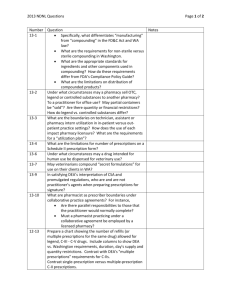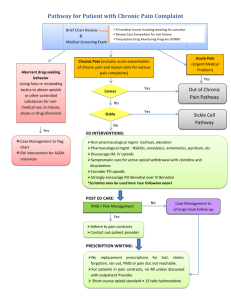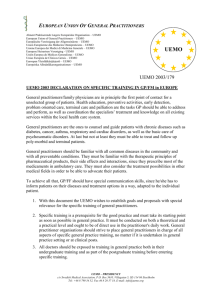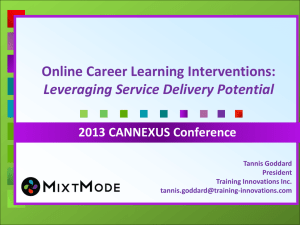Plain Banner
advertisement
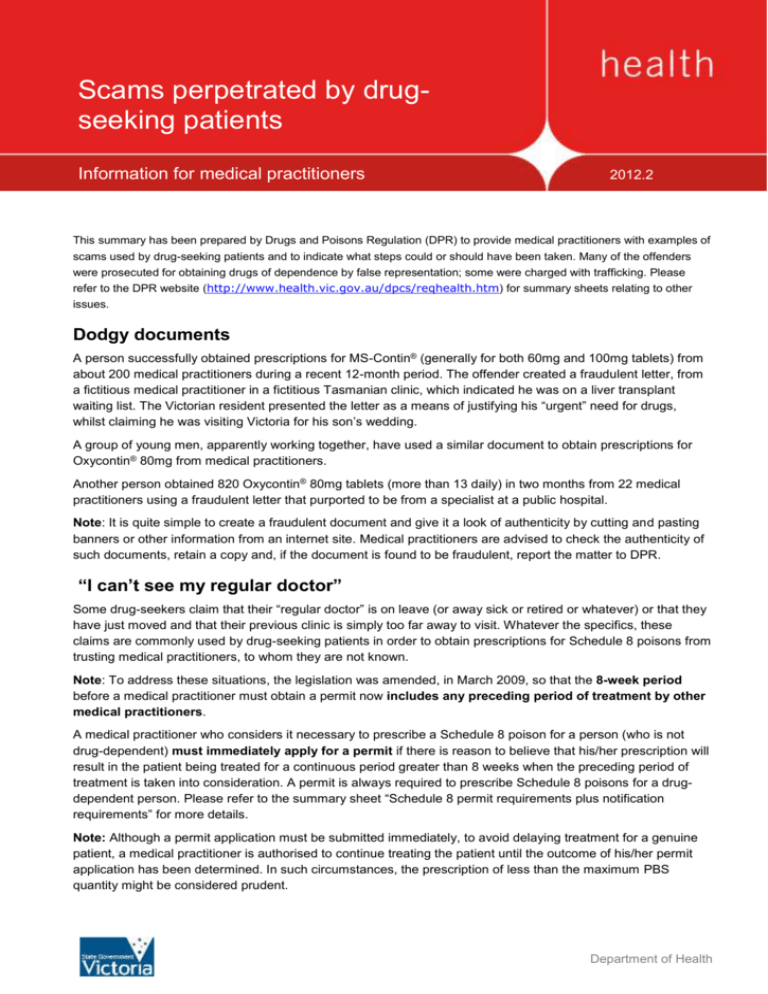
Scams perpetrated by drugseeking patients Information for medical practitioners 2012.2 This summary has been prepared by Drugs and Poisons Regulation (DPR) to provide medical practitioners with examples of scams used by drug-seeking patients and to indicate what steps could or should have been taken. Many of the offenders were prosecuted for obtaining drugs of dependence by false representation; some were charged with trafficking. Please refer to the DPR website (http://www.health.vic.gov.au/dpcs/reqhealth.htm) for summary sheets relating to other issues. Dodgy documents A person successfully obtained prescriptions for MS-Contin® (generally for both 60mg and 100mg tablets) from about 200 medical practitioners during a recent 12-month period. The offender created a fraudulent letter, from a fictitious medical practitioner in a fictitious Tasmanian clinic, which indicated he was on a liver transplant waiting list. The Victorian resident presented the letter as a means of justifying his “urgent” need for drugs, whilst claiming he was visiting Victoria for his son’s wedding. A group of young men, apparently working together, have used a similar document to obtain prescriptions for Oxycontin® 80mg from medical practitioners. Another person obtained 820 Oxycontin® 80mg tablets (more than 13 daily) in two months from 22 medical practitioners using a fraudulent letter that purported to be from a specialist at a public hospital. Note: It is quite simple to create a fraudulent document and give it a look of authenticity by cutting and pasting banners or other information from an internet site. Medical practitioners are advised to check the authenticity of such documents, retain a copy and, if the document is found to be fraudulent, report the matter to DPR. “I can’t see my regular doctor” Some drug-seekers claim that their “regular doctor” is on leave (or away sick or retired or whatever) or that they have just moved and that their previous clinic is simply too far away to visit. Whatever the specifics, these claims are commonly used by drug-seeking patients in order to obtain prescriptions for Schedule 8 poisons from trusting medical practitioners, to whom they are not known. Note: To address these situations, the legislation was amended, in March 2009, so that the 8-week period before a medical practitioner must obtain a permit now includes any preceding period of treatment by other medical practitioners. A medical practitioner who considers it necessary to prescribe a Schedule 8 poison for a person (who is not drug-dependent) must immediately apply for a permit if there is reason to believe that his/her prescription will result in the patient being treated for a continuous period greater than 8 weeks when the preceding period of treatment is taken into consideration. A permit is always required to prescribe Schedule 8 poisons for a drugdependent person. Please refer to the summary sheet “Schedule 8 permit requirements plus notification requirements” for more details. Note: Although a permit application must be submitted immediately, to avoid delaying treatment for a genuine patient, a medical practitioner is authorised to continue treating the patient until the outcome of his/her permit application has been determined. In such circumstances, the prescription of less than the maximum PBS quantity might be considered prudent. Department of Health Interstate visitors Many drug-seeking patients have successfully claimed to be visiting from interstate as a means of obtaining prescriptions for Schedule 8 poisons from well-intentioned medical practitioners. In some cases, the patients have presented medication containers dispensed at interstate pharmacies, in order to satisfy the medical practitioner that they are from interstate. One frequent drug-seeking patient, who resides in Victoria, uses a fraudulent letter that contains accurate details of an interstate clinic but an after-hours phone number that connects with his female accomplice. Note: Whereas prescriptions for Schedule 8 poisons were not previously valid unless the prescriber was registered in Victoria, now that national registration is in effect, prescriptions from medical practitioners practising elsewhere in Australia are valid in Victoria. Accordingly, transient interstate visitors can be advised to obtain prescriptions from their regular prescribers or, in an emergency, have their regular prescribers phone a Victorian pharmacy to authorise supply of Schedule 8 poisons. Forgeries by a trusted patient A patient wrote dozens of forged prescriptions for MS-Contin® tablets. On each occasion that he attended the clinic, he would help himself to one or two pages from the top of the prescription pad that was left in the consulting room in which he would wait for his doctor. He would then create a forgery by copying the genuine prescription, written during the consultation, knowing that his doctor would confirm he had written a prescription if queried by a pharmacist. Note: Please ensure that script pads and pages for computer-generated prescriptions scripts are secured (not left unattended) where staff members and members of the public can access them. Fraudulent computer-generated prescriptions An offender successfully presented more than forty forgeries for MS-Contin® 100mg tablets, during a two-month period, after using his computer printer to copy the details of genuine prescriptions on to stolen computer prescription pages. Note: To address this growing problem, medical practitioners in Victoria must still handwrite significant components of computer-generated scripts for all drugs of dependence and must not manually alter computergenerated scripts. Private (non-PBS) prescriptions A number of general practitioners wrote “private” prescriptions for dexamphetamine tablets for a woman, who attended with a child and claimed to be visiting from interstate. The woman, who was trafficking the dexamphetamine, convinced the general practitioners that it was okay to prescribe the drug on a private prescription; this is not the case. Note: General practitioners must obtain a permit before prescribing methadone (Physeptone®) dexamphetamine or methylphenidate (Ritalin®, Attenta®, Concerta®) regardless of whether or not the drug is to be prescribed as a PBS item. Less common scams A man obtained several prescriptions, for anabolic steroids and other drugs that have a potential for use in the world of bodybuilding, from a general practitioner. It appears he did this by phoning the general practitioner, successfully portraying himself as a specialist practitioner and referring a patient (himself) to the general practitioner to obtain prescriptions for his regular medications because he was unable to consult the specialist. The same offender obtained more than 800 anabolic steroid injections by presenting forged prescriptions and obtained enough testosterone to treat 87,000 sheep by convincing a veterinary practitioner that he was a sheep farmer. Page 2 Department of Health Note: Some drug-seeking activities are associated with drug trafficking rather than supporting personal misuse of the drugs being sought. Medical practitioners are advised to be especially alert for patients seeking the following medications – even if the person does not appear to be a drug-dependent person. Oxycontin® 80mg, Oxycontin® 40mg, Kapanol® 100mg, MS-Contin® 100mg, anabolic steroids, alprazolam, clonazepam and products containing pseudoephedrine are known to be especially subject to trafficking. Drug-seeking behaviour - key issues A patient with a valid therapeutic need for drugs of dependence should have a principal medical practitioner to manage his/her medication regimen Concurrent prescribing by other doctors might be detrimental to the patient Drug-seeking behaviour is not limited to users of illicit drugs Some drug-seekers have genuine medical problems but have (or are developing) an iatrogenic dependence Drug-seeking activity may also be associated with diversion and sale of prescription drugs. Medical practitioners are reminded that they are not obliged to prescribe the maximum PBS quantity of a drugespecially when a smaller quantity can address an immediate need whilst minimising the potential risks associated with drug-seeking behaviour. Before prescribing a drug of dependence, a prescriber must take all reasonable steps to ensure a therapeutic need exists and to ascertain the identity of a patient. Further information about suspected drug-seeking patients may be available from Medicare Australia’s Prescription Shopper Information Service 1800 631 181 or the DPR Help Line - 1300 364 545 (option 1). Please refer to the summary sheet “Obtaining information relating to drug-seeking patients” for more details. Other agencies To obtain clinical advice from specialist consultants, health professionals (only) may phone the Drug and Alcohol Clinical Advisory Service (DACAS) on 1800 812 804 For 24-hour confidential drug and alcohol counselling and treatment information, patients, family or health professionals may phone Direct Line - 1800 888 236 For further information Department of Health (DH) Drugs and Poisons Regulation, GPO Box 4541 Melbourne 3001 Tel: 1300 364 545 Fax: 1300 360 830 Web: www.health.vic.gov.au/dpcs September 2010 Page 3 Department of Health

